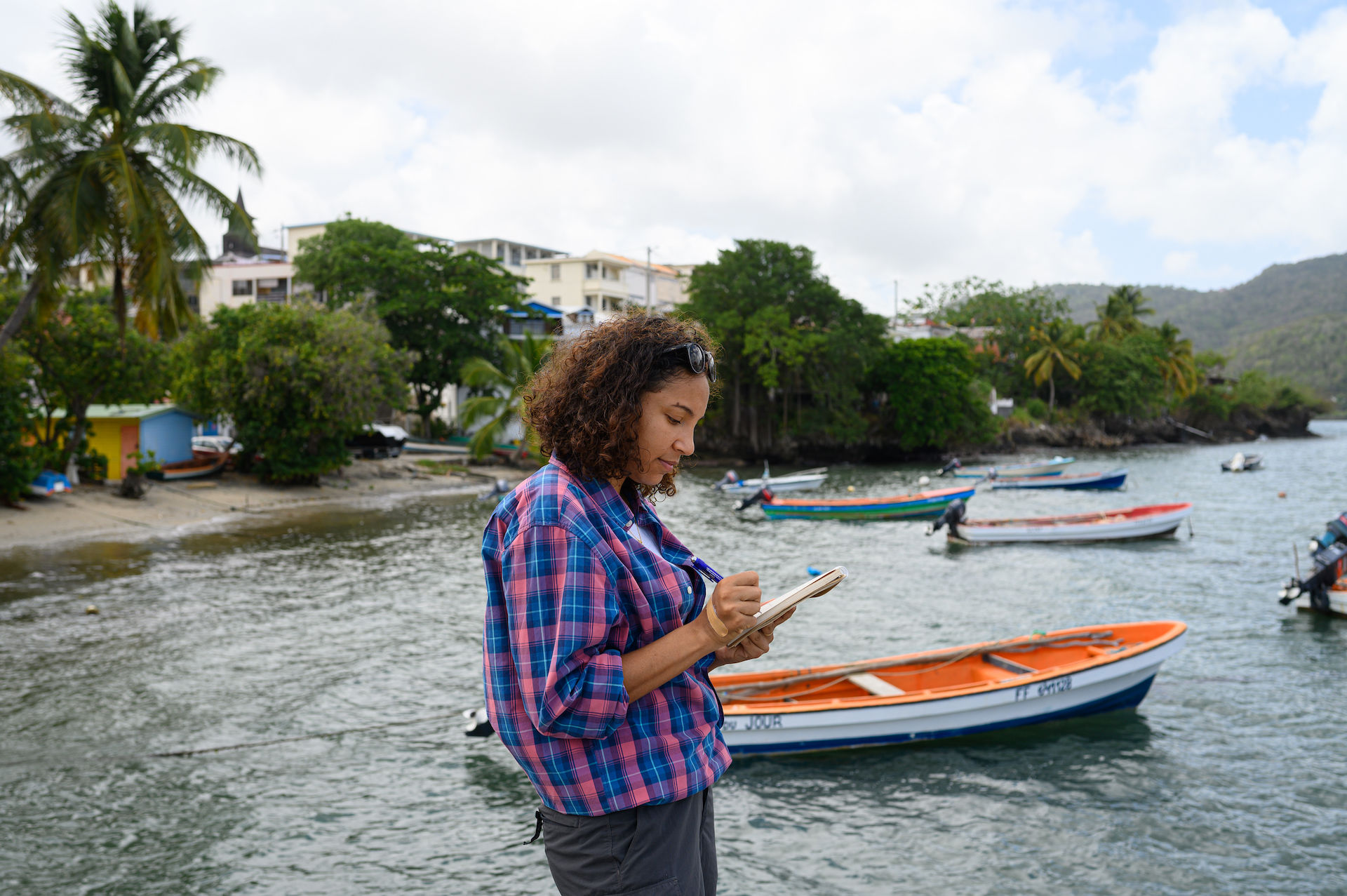News
NatGeo Explorer: meet Frédérique Fardin

News | Aug 2020
National Geographic Explorer grants support groundbreaking scientists, conservationists, educators, and storytellers. Meet Frédérique Fardin, an Explorer and associate PhD student with the University of Cambridge and UNEP-WCMC.
First, congratulations on becoming a National Geographic Explorer! Could you tell us a bit about your area of research?
My area of research is at the intersection between biophysical and human geography. I am looking at the vulnerability and adaptation of mangrove forests and fisheries to climate change by combining biophysical and socioeconomic data.
On one side of my research, I am using historical and contemporary data revealing environmental changes in and around mangrove ecosystems. On the other side, I am looking at the populations that are living in the selected coastal field sites to evaluate their perception of environmental changes and their capacity to adapt to them.
What is your role in UNEP-WCMC and your background in conservation?
I graduated a few years ago in Tropical Ecology and Evolution with a Bachelor and Masters degree mostly focusing on terrestrial environments. After my studies abroad, I went back to my native region – the Caribbean - and realised how critical marine and coastal ecosystems are at a regional scale.
Of course, this doesn’t mean that terrestrial areas like dry forests and rainforests are less important, but within an archipelago the sea is the pillar that connects us. It is also at the centre of common issues as such as the Sargassum influx (a massive landing of brown algae) which has been ongoing since 2011.
In my early career I examined subjects such as the management of this unprecedented algal bloom as well as wetlands conservation, marine mammals’ conservation, regional biodiversity strategies and climate change adaptation.
Now that I am in Cambridge, I am enjoying being an associate PhD student with UNEP-WCMC, which allows me to learn from many relevant ongoing projects related to marine and coastal conservation worldwide.
What are you most looking forward to in terms of conducting this research/the Explorers grant?
Honestly, I was so thrilled when I receive this Early career grant from NatGeo. This was firstly because it allowed me to extend my PhD research sites to the Caribbean. When I started my PhD it was actually restricted to the Indo-Pacific region.
Secondly, I am excited about the new opportunities that comes with becoming a NatGeo Explorer, including with outreach and communication. I am looking forward to raising awareness about the emergency to protect mangroves but also to put an emphasis on communities that are vulnerable to climate change around the Caribbean and amplifying their voices. If I am able to do that, it will be a major win, alongside the completion of my PhD.
My data collection consists of semi-structured interviews, surveys, participatory mapping and active observation of people from coastal communities around mangroves areas. Depending on the field site, I’m collecting information such as the vegetation structure, local water level variation, and sediment content.
Initially, I was supposed to conduct this project from April to July 2020, but due to the Covid-19 outbreak this has been put on hold. I am getting ready to start at the end of August, but the project will now work quite differently. I am following the rules put in place by my University and the different governments strictly, and so I have cancelled sites and changed procedures, making it as safe as possible for everyone.
Although it will not be the fieldwork I had imagined, I am very grateful to be able to pursue my research and I am looking forward to learning through this process. If the global health situation taught me something, it’s that we need to be constantly creative, positive, and resilient.
Have a query?
Contact us
communications@unep-wcmc.org
